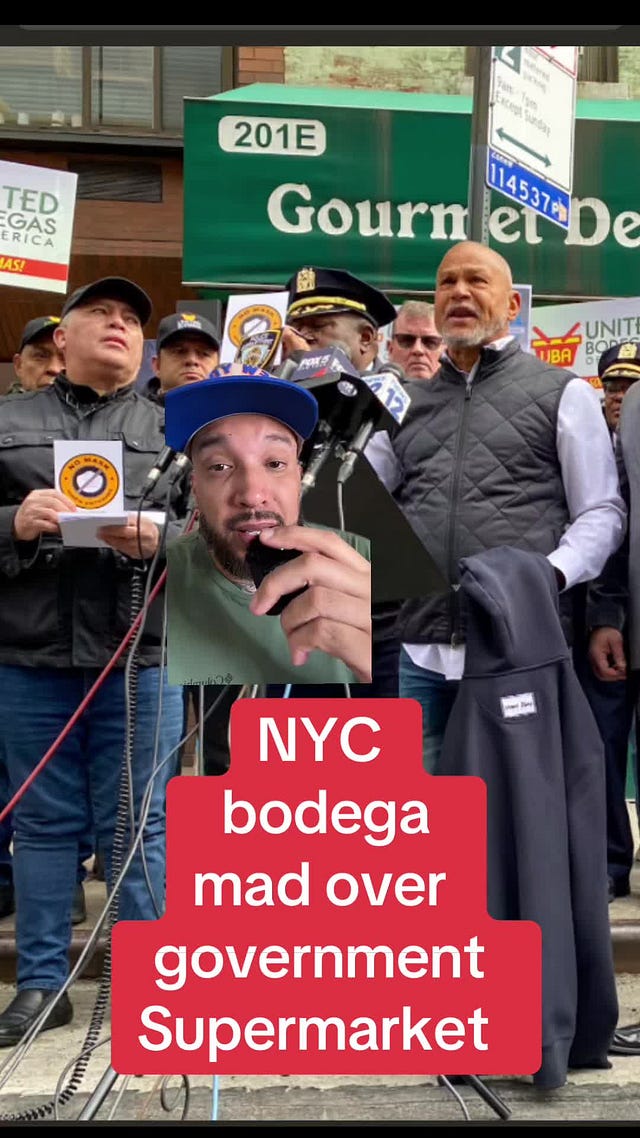215: Trump’s Big Beautiful Bill and the Prison-Industrial Workforce
Who Needs Immigration When You Have Incarceration?
Our July salon on the nature of nature is this coming Wednesday at noon eastern time, 5pm UK time, and 9am Pacific time. To join us, email metaviews at gmail.com or join our Signal chat, also done by sending an email.
The United States is not reshoring manufacturing.
It’s rebuilding slavery.
The Big Beautiful Bill — Trump’s signature economic and immigration policy — isn’t about revitalizing American industry. It’s about consolidating a system in which labour is extracted through violence, surveillance, and confinement. A system where the factory is a prison, and the worker is an inmate.
Across the U.S., incarcerated people are assembling goods, packaging food, stitching uniforms, and performing industrial labour under the guise of “rehabilitation.” They are paid pennies, if anything. They are denied the right to refuse. If they protest, they are punished. And if they die on the job, no one outside ever hears their names.
The prison-industrial complex has long been America’s hidden engine of production. What’s changed is that now it’s the official engine of industrial policy.
Trump’s “Big Beautiful Bill” is marketed as pro-worker and pro-American. Its key pillars — limiting immigration, reshoring manufacturing, securing the border — echo a kind of nationalist nostalgia: a return to the golden age of domestic industry.
But the real function of the bill is to replace one vulnerable workforce (migrants) with one that has even fewer rights (prisoners). This is not protectionism. It’s authoritarian substitution.
Rather than improve wages or strengthen unions, the bill turns to the carceral system to discipline and deliver labour. It builds factories inside of prisons. It subsidizes private prison operators as partners in “domestic production.” It criminalizes protest, surveils dissent, and makes deportation a tool of workplace management.
The bill is a blueprint for forced labour.
Immigration as Scapegoat, Incarceration as Policy
The right-wing crusade against immigration has never been about borders. It’s been about control. Migrant workers are blamed for low wages, while employers enjoy the benefits of a precarious, undocumented, and easily exploitable labour pool.
Now, with immigration further restricted and fear weaponized, that pool is drying up.
The solution? Fill the gap with prisoners.
The U.S. already incarcerates more people than any country on Earth. Now those cages are being converted into work sites. Public and private prison operators offer contracts for labour, marketing themselves as patriotic alternatives to Chinese manufacturing. States cut deals with corporations. Inmates are assigned tasks. The rest of the country is told this is “job creation.”
Under this regime, worker resistance is treated as subversion. New laws criminalize striking and picketing. Police monitor organizing. Employers invoke national security when faced with workplace demands.
Meanwhile, entire categories of labor — especially Black and Brown workers, especially the poor — are policed into compliance or disappearance. Some go to jail for protest. Others go for poverty. Either way, they end up in the same economy of punishment.
American Industry Was Never Free
This is not some shocking deviation from America’s past. This is its continuity.
From Indigenous genocide to plantation slavery, from chain gangs to prison labour, the U.S. has always relied on forced labour to fuel growth. What’s changing now is not the method, but the scale — and the boldness with which it is being institutionalized.
The Big Beautiful Bill is a declaration of intent: We will build the future with cages, and dare you to stop us.
This isn’t just about prison reform. It’s about the total abolition of a system that treats human beings as inputs to a machine — one that runs on captivity, fear, and racial violence.
Prison labour doesn’t need oversight.
It needs to be destroyed.
The carceral state has no place in a just economy. It exists to extract value from bodies it deems disposable, to disappear dissent, to control surplus populations, and to manufacture obedience. The same system that cages migrants at the border, that floods communities with police, that raids workplaces and calls it order — that system cannot be reformed. It must be dismantled.
Abolition means no more prison factories.
No more ICE raids.
No more “jobs” that begin in a courtroom and end in a cage.
But abolition isn’t just about what we tear down. It’s about what we build in its place.
It means constructing an economy grounded in care, not coercion.
In dignity, not detention.
In solidarity, not surveillance.
The future we want cannot be made inside a prison.
And the only way to get there is together — on the outside, breaking every chain this system depends on.







Again, a mirror of Nazi Germany and the Soviet Union where the concentration camp and the gulag provided labour for the state.